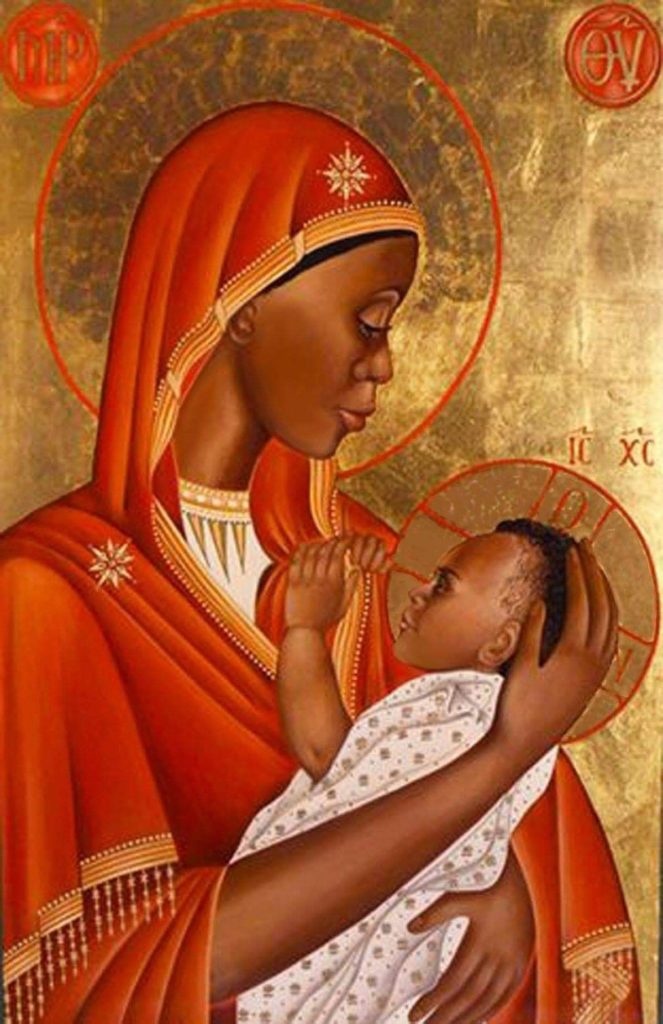“At the Heart of our Salvation” by Sister Luce Marie Dionne
Advent Reflection by Sister Luce Marie Dionne
Isaiah 7: 10-14 Romans 1:1-7 Psalm 24: 1-6 Mt 1:18 – 24
We hear for the last week of Advent the “O Antiphons” which are drawn from scriptural verses of the Old Testament. They consist of Seven Messianic Titles for the Messiah followed by statements of praise and signs signifying the divine unfolding of Christ’s Incarnation. On December 17, for example, we began our Evening Prayer with: “O Wisdom, O Holy Word of God, you govern all creation with your strong yet tender care. Come and show your people the way to salvation.”
A Sign represents something else like a title or a name. Spiritually it can also signify the reality of a divine intervention, a form of revelation. And usually, this divine revelation can be perceived by the heart of a person inspired to listen or see it. In the first reading from Isaiah 7:10-14 we encounter Ahaz who refuses the offer of a sign. However, as the Jerome commentary explains, that even in that rejection, “Isaiah’s perspective…moves ahead to that ideal king of David’s line through whose coming God could finally be said to be definitely with his people; that…the solemnity of the oracle and the name Immanuel (meaning ‘God with us’) expresses Isaiah’s…hope that Christ (would eventually be) perfectly realized.” (Jerome p. 271). In Matthew’s Gospel, another sign is revealed, but this time Joseph receives the revelation, which comes to him through the appearance of an angel in a dream. Unlike Ahaz, Joseph does not reject this sign, but acts upon it. And an “angel of the Lord announces the name of the child ’Iesous’ (Jesus)…the name which means ‘Yahweh Saves” (Mt 1:18-24). This Name of “Iesous” signifies not only the divine incarnation, that is, “the relationship of Christ to God in salvific process,” (Mt 1:18-24), but also the holiness of the name “Iesous” itself, “for the sake of his Name among nations” (Romans 1:1-7).
And how do we take this Holy Name into our hearts? How do we become a part of Christ’s divine mystery of the Incarnation, which is already here in the world at the core or our existence? As St. John’s Gospel states, “God is Love”, and we experience this love in many ways through human common good. We experience this love through the diversity of spiritual faiths from many religions across the world. The Holy Spirit is alive and among us. Also, like Jesus we all have a unique name given to us at birth signifying who we are…a title like an “O Antiphon.” Our individual names are signs signifying our particular hearts. Theologian F. Karl Rahner reflects in “The Mystery of the Heart” that the “‘heart’ is the name we give to the unifying element in the human person’s diversity. The heart is that ultimate ground of a person’s being. Her diversity of character, thought, and activity springs from this ground. All that she is and does unfolds from this source…The heart is the name we give to the inner ground of an individual’s character, wherein a person is really himself (herself, themselves), unique and alone. – this is what we call the heart…and that is the reason why only the heart knows in the full sense of the word, (and is capable of knowing) the mystery that is God.” And only God knows the heart of each of us.
Therefore, we are called to give reverence to our being as well as reverence to other hearts around us. This is not an institutional reverence on a pedestal given or expected, but a reverence in humility, of understanding the simplicity of our selves participating in a world with others. And people have to be who they are in order to perceive their own sacredness unfolding in God. The name Emmanuel-God-With-Us is this uniqueness in all of us.
From the Benedictine perspective, it is also a reverence for the freedom of seeking God. God communicates to us in spiritual freedom. St. Benedict’s ultimate goal is monastic freedom – not just for the call to prayer, or to ministries, but to needed time for spiritual attentiveness to seek Emmanuel in ourselves and in others. I believe this is the ultimate “Work of God,” for any Christian, inviting the heart of Jesus into the deepest part of our selves each day, while on the journey of becoming whole and holy in God’s heart. The psalmist in Psalm 24 asks: “Who can ascend the mountain of the Lord? Who may stand in this holy place? The reply is given that what is required is “purity of heart, a clean conscience and to do no harm to others” (Jerome, 271). And as stated in the Benedictine Rule: “They should each try to be the first to show respect to the other…supporting with the greatest patience one another’s weakness of body and behavior” (Rule, 72). We must begin, always and continuously, with our own hearts, our own names, to hear the source of Christ’s wisdom and truth, which is capable of leading us to great kindness. We are not perfect, and this has nothing to do with human perfection. This is about constant examination of our own conscience so we can all find our interior spiritual center and the spiritual center within community.
The truth of the birth of Christ, divine and human, begins the Messianic Age of our own humanity and divinity, becoming whole in God’s amazing loving eternal heart. The psalmist in Psalm 24 also states “The Lord’s are the earth and its fullness, the world and those who dwell in it.” God-Emmanuel is here and now, waiting for us. During Advent, we are invited to open up to the joy of a holy season, a gathering of a holy people no matter our circumstances, guided into the mystery of a Holy virgin birth of a child, Jesus with his mother…full of grace…full of love… and in the fullness of God-Christ’s Wisdom on Earth.
“O Wisdom, who comes from the mouth of the Most High reaching from end to end and disposing all things sweetly and mightily.” O Come O come Emmanuel!
Sister Luce Marie Dionne, OSB, RA, NCARB is a licensed Architect, immersed in Scripture, the Rule of St. Benedict, Ecumenical and Interfaith dialogue, and Sustainability for the Planet.


